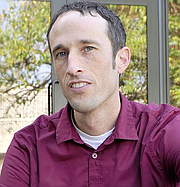I was ready to give up: the work, Mississippi, everything. Jasper had been killed in Parchman. They say suicide, but anyone who is familiar with death in prisons knows that even if he was killed with his own hands, it wasn't suicide.
Jasper was born in prison, literally, on July 22, 1994. He died there on May 13, 2016. Less than 22 years later, the blood stained the same steel that birthed him. In between, he fought with systems and himself to survive. His brother found their father dead on the doorstep at a young age. Jasper was constantly in and out of juvenile detention and between homes. In between, he lived and learned the streets of the Washington Addition. Early on, he was in Open Doors (honors) while simultaneously getting kicked out of school for fights. Soon after, the streets came calling.
Jasper was brilliant, but he was lost before we had a chance. I met him after he was gone too far. At 14, he was already known in the community and with the police. His aunt did all she was able to for him, but we all failed Jasper.
What's lost in the headlines about someone like Jasper is who he was and who he could have been. One cannot condone any act that he may have done, but one has to look more analytically at all the systems that put this young, black male away even before he was born behind the clanging prison doors.
Jasper was a born leader. Jasper wanted his family and the people around him to do better and be better. He got into bad habits, not because he wanted to destroy his community, but because he wanted to help out his family. He played offense in the community, so that he didn't have to play defense for his family.
Jasper was born into violence, where problems are resolved with violence. He was angry. The schools wouldn't and couldn't understand him and made it clear he wasn't welcome—they weren't created to support children like Jasper. I remember talking to some of his past teachers who would say how smart he was, but the adults in his life, who were there to serve him, knew they weren't equipped, and that led to worse outcomes.
When his aunt would call me in the middle of the night crying, "Jasper is gone. I need help," I would naively roll over to the Addition thinking that what she was asking me to do was look for him. Sometimes, I would actually find him at Sheppard Brothers Park or riding his bike, but usually, he was somewhere invisible. When he would eventually come home, we would sit on the steps and talk. I just listened as he talked about his family and his darkening future. He said he was trying to do things right but could never live up to anyone's expectations. Inevitably, I would get a call soon after from his aunt in tears that he'd been arrested again.
Jasper was not yet 16 when he entered the adult prison system. We started writing. As I would imagine with anyone in his situation, he had to navigate how to both be scared out of his mind for what was facing him (his sentence) and his location (adult jail) and also having to act tough to fit in and survive. He tried to convey this in some of his letters. He languished without a real hearing for almost two years before he suddenly pleaded guilty to some of the charges. No one could help him.
Jasper would write. And write. Jasper's letters were fluid. Not just in what he wrote but how he wrote. His script was art; they were well-crafted letters that painted the page. He talked about getting "straight" and what he was going to do and need when he got out. This was not a young man who was talking about violent death—unlike his youth, when it always existed around him. I have worked with many young people who have serious histories of mental-health problems, many of whom have attempted suicide or had the ideation to, and Jasper never had those issues. He somehow managed to not have mental-health issues. Yet, he was found dead in his cell in an empty unit in Parchman.
We'll probably never know what happened to Jasper, what led to his eventual death. I have heard plenty of corrections officers tempt young people with threats of death, saying of suicide, "No one will care if you do it." A couple even went for the challenge. Jasper seemed stronger than that. He knew he wasn't perfect but knew if he worked hard, he could get out and contribute to his family.
Though he died alone, Jasper's death should not be meaningless. He fought life trying to survive. He tried to survive the Addition, in a school system that didn't care about him, in a broken family system, in a criminal-justice system that found him guilty before birth, and he tried to survive in a world that never believed he would be much else than what he became. For Jasper, we must not break; we must not give up on him, our community or each other.
Jed Oppenheim is a citizen of Jackson and a school board member in Jackson Public Schools.



Comments
Use the comment form below to begin a discussion about this content.
comments powered by Disqus